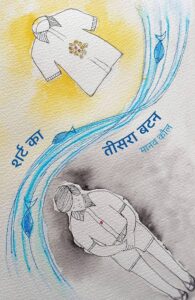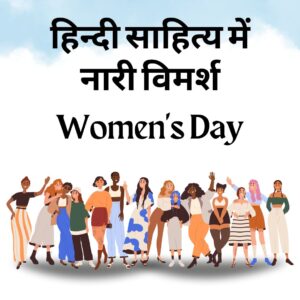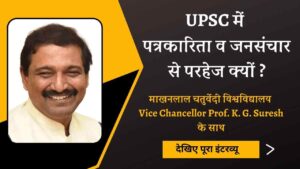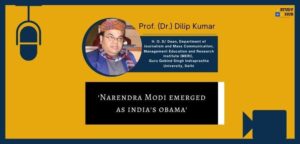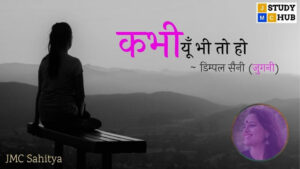The MacBride Commission, formally known as the International Commission for the Study of Communication Problems, stands as a pivotal moment in the history of media, communication studies, and international relations. ‘ The MacBride Commission at the time was a 16-member body, established by UNESCO in 1977, this commission embarked on a mission to assess and address critical issues related to global communication, media ownership, freedom of the press, and information flow between developed and developing nations. In this blog post, we’ll delve into the history, purpose, impact, and legacy of the MacBride Commission.
The Context and Need for the MacBride Commission
In the late 1970s, the world was witnessing a rapidly changing media landscape. Western media conglomerates were gaining prominence, raising concerns about media concentration and its implications for cultural diversity. Developing countries were grappling with unequal access to information, often dominated by Western news outlets. In response to these challenges, UNESCO convened the MacBride Commission to examine the complex world of global communication.
Establishment and Leadership
The commission was named after its chairman, Sean MacBride, an Irish statesman and Nobel Peace Prize laureate. Comprising experts from various fields, including communication, media studies, and international relations, the MacBride Commission began its work in 1977. B. G Verghese was the only Indian representative among members of the MacBride Commission. Boobli George Verghese was a senior Indian journalist. He was editor of leading newspapers the Hindustan Times and The Indian Express.
Objectives of the MacBride Commission
The primary objectives of the MacBride Commission were as follows:
- To analyze the global communication landscape, identifying imbalances and challenges.
- To propose recommendations for fostering equitable information flow.
- To advocate for media diversity, freedom of expression, and cultural preservation.
A major recommendation of the MacBride Commission was ‘Democratisation of media’.
This pivotal recommendation called for measures to make media systems more inclusive and accessible to a diverse range of voices and perspectives. The commission recognized the concentration of media ownership and control as a barrier to a vibrant and pluralistic media landscape. To address this issue, the recommendation emphasized expanding access to media platforms, reducing ownership concentration, supporting independent and community-based media, promoting media literacy, and safeguarding freedom of expression. The aim was to create media environments that empowered individuals and communities, fostering a more equitable and participatory media landscape in which media served as a vital tool for democracy, cultural expression, and the free exchange of ideas.
“Many Voices, One World” Report
In 1980, the MacBride Commission released its landmark report titled “Many Voices, One World.” This comprehensive document presented a thorough analysis of global communication issues and offered a set of recommendations to address them. Key findings and recommendations included:
- Emphasis on equitable information flow between developed and developing countries.
- Promotion of media diversity and local content production to counter Western media dominance.
- Advocacy for the democratization of communication systems.
- Encouragement of national media policies to protect cultural identities and ensure diverse sources of information.
- Highlighting the importance of reducing media concentration and fostering media pluralism.
NWICO in MacBride report
NWICO, or the New World Information and Communication Order, was a significant international movement in response to concerns about the global media landscape. It was driven by many countries, particularly from the developing world, who felt that the existing media order was dominated by Western countries and media conglomerates, leading to unequal representation and limited diversity in media content. NWICO aimed to create a more equitable and balanced global communication system. It sought to challenge the dominance of Western media, promote cultural diversity, and ensure that developing countries had a greater role and influence in shaping the international media environment.
Impact and Controversy
The MacBride Commission’s report had a profound impact on global discussions about media and communication policies. It influenced the development of media policies in many countries, sparking initiatives to promote media diversity and protect cultural identities. However, it was not without controversy. Critics argued that some recommendations could be seen as an attempt to restrict press freedom, sparking debates about the balance between regulating media for cultural and political purposes and protecting journalistic independence.
Legacy of the MacBride Commission
The MacBride Commission left an enduring legacy. Its report remains a seminal work in communication studies and has continued to shape discussions on media ownership, cultural diversity, and global communication issues. The commission’s work laid the foundation for subsequent initiatives aimed at addressing communication disparities and fostering a more inclusive and balanced global media landscape.
Related Questions Asked in UGC-NET Exam
Q. When “Mac Bride Report’ was accepted by UNESCO? (UGC-NET June 2023 Mass Communication)
Q. Who was the Indian representative to the MacBride Commission? (Daily Mass Communication Quiz)
Q. What was the name of the report Mac Bride commission? (Daily Mass Communication Quiz)
Q. A major recommendation of the Mac Bride Commission was (UGC-NET July 2018 Mass Communication)
Q. International Commission to study communication in the world by UNESCO was known as ((Daily Mass Communication Quiz)



